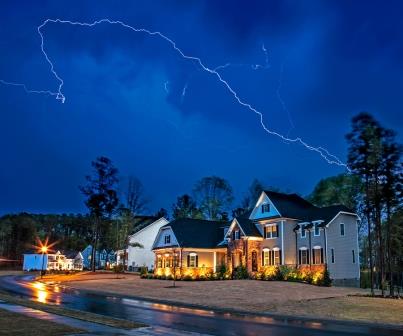The Role of the HOA Management Company

We are often asked about what homeowners perceive to be the responsibility of the home management company. The truth is that contracts vary from one HOA to another, so there is no blanket answer. The duties will be outlined in the Management Agreement and often involve both site and administrative management, but not always. Depening on the needs of your association, you may have a financial only contract with your management company. Financial-Only Duties: Management of the reserve fund (savings account) Accounts payable Budget prep Tax prep Dues and collections management Resale disclosures Full-service duties: Property inspections (frequency determined by contractor) Contractor bidding and supervision Policy/rule enforcement Correspondence Dedicated community manager (on- or off-site as per HOA needs and contract) Meetings Handyman services 24/7 emergency services All financial services (as listen in financial-only duties) Each HOA is different and has different needs. If you want to know which type of management company your HOA chose, don’t feel afraid to ask.
Getting Ready to Sell in an HOA

Looking to sell your home? During our current global pandemic selling a home come with a few additional considerations. Your realtor will be a wonderful source for guidance, but we’ve compiled a short list of things to consider. COVID Considerations By appointment only. Open houses have been a wonderful selling tool for homes for a very long time. There is nothing like seeing a home with your own eyes. However, the COVID pandemic is making is harder to hold an open house. Many sellers are doing by-appointment-only viewings. Additionally, video showings have become popular. Facebook Live and Zoom are resources for agents to consider. Providing hand sanitizer and/or wipes is a good idea for those who are visiting in-person. Clean and reorganize your space. Ensure your space is clean and organized in case of any last-minute showings, especially when you are actively holding showings. Also try to reorganize your furniture so the living areas appear bigger. This can be as simple as moving a couch from point A to point B, or as intensive as moving bigger furniture pieces into your new home to really show the potential buyers how much space they would be getting. Depersonalize your space so your potential buyers can imagine themselves living there. When you sell your house, you will not be leaving photos of your favorite pet or family gatherings. It is also unlikely that your potential buyers want to keep your family heirlooms, so ensure they are already out of the space before you start showing. While it may seem minor, having an abstract picture will help your space seem like more of a blank slate than a collage from your most recent vacation. Little updates go a long way. Do you have a squeaky door or old hardware? While it might seem like no big deal, making these small changes can have a huge impact on whether people are interested in your home or not. To potential buyers, those are just one more thing they will have to invest in when they buy, so spending an extra $10 for a new hinge or hardware will help your home sell faster. Focus on your kitchen and bathroom, as they are both big sellers. No one wants to walk into the bathroom and see water stains inside the tub or coffee stains on the kitchen counter. Ensure your big-ticket rooms are as clean as they were when your home finished construction. While they may seem like minor issues, just like the updates mentioned earlier, they can make or break a sale. Be flexible with your showings. Ensure you are being responsive and kind when dealing with potential buyers and try to be as flexible as you can. While there are commitments you can’t get out of, like a wedding or family emergency, don’t say no to a showing just because you want to binge-watch your favorite TV series. The more flexible you are will your showings, the faster your home will sell. Choose the right realtor who knows how to market an HOA property. Make sure to ask them the questions you had when moving into an HOA, such as what are some of the rules and fees? Also ensure that they are listing your home on websites such as realtor.com and see if they will bring in professionals to stage and photograph your home. As the seller, you will need to provide resale documents to your potential buyer. You can find this information on our website. Visit sharpermanagement.com and look for the Resale Disclosures link in the menu bar, or Click here.
Summer Storms – Staying Safe

As we enter storm season, we want to give you a few useful tips to keep in mind. General Storm Tips: Avoid wires and water. If your building is struck by lightning, avoid touching water and wires as they can conduct the voltage. Even touching a plugged-in lamp or getting tap water can result in getting zapped. If your building has been struck, use only wireless devices, and do not use the tap for anything until you know that it is safe to do so. Lighting and trees are not a good combination. Trees are generally taller than their surroundings, which makes them nature’s lightening rods. If you are by a tree, try to get away as trees can conduct the electricity into the ground and can even explode due to the heat. Along with strong winds, this could be dangerous if you are too close. Have sudden tingly hair? That is a sign that lighting will be striking soon. If this happens, crouch low to the ground with your feet and shoes touching the ground, with your head and ears tucked and covered. Experts say that this position provides some protection from a direct lighting strike. When this sensation passes, quickly move to a building or car for better protection Find shelter as soon as you can. If you are outdoors and near a building, get inside as quick as you can. If you are in a car or there are no buildings nearby, there are a few things you should do. In the case of a tornado, find a ditch or lowest ground possible, lay down, and cover your head and neck with your arms. While this area is more prone to flooding, it is the safest place to be. If there is a storm but no tornado, then stay in your car. The car’s body will help direct the electricity away from you and into the ground; however, if your car is struck be sure not to touch door handles or other metal components (like a radio dial) in case it still has a current. General Tornado Tips: If you are at home during a tornado, go to a windowless interior room on the lowest level of your house, like a basement or storm cellar. If you don’t have either, go to an inner hallway or small room without windows, such as a pantry, bathroom, or closet. Make sure to stay away from windows as well as corners, as they tend to attract more debris. If possible, get under a sturdy piece of furniture, like a desk or table, and hold onto it. Make sure to use your arms to protect your neck and head in case of falling debris, and if you live in a mobile home, leave and find shelter somewhere else. If you are not at home during a tornado, get to the closest building you can and find a room/hallway on the lowest level without a window. Make sure you do not go to a room with a wide-span roof like an auditorium, shopping mall, or cafeteria. Just like at home, hide and hold onto a sturdy piece of furniture and use your arms to protect your head and neck. If you are outdoors during a tornado, seek shelter immediately. If you are not close to shelter, get out of your vehicle and stay away from trees. Find the lowest area of land and lay there with your arms over your head and neck. If you feel the need to drive away from the tornado, ensure you are not going faster than the tornado as it can change directly quickly. DO NOT get out of your vehicle to climb an embankment or bridge as being higher will increase your risk. We wish you all have a safe and fun-filled summer!
